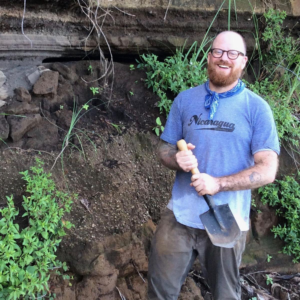About the Program
The Carnegie Educational Technology Fellowship Program provides faculty with walk-in office hour support, intensive consultations, workshops, and other support services during the Spring and Fall 2021 semesters.This fellowship’s long-term goals are to expand faculty comfort with educational technologies during the COVID-19 era and after in preparation for the return to in-person instructional modalities. This fellowship program is generously funded by the Carnegie Corporation of New York.
To request a consultation with the fellows, click here.
Carnegie Ed Tech Fellows
Stephanie V. Love is a doctoral candidate in linguistic anthropology at the Graduate Center of the City University of New York (CUNY). Her dissertation explores postcolonial politics, language, and urbanism in Oran, Algeria. She has an M.Ed. from the University of Washington. She has published articles in the Journal of Language, Identity and Education, Current Issues in Language Planning, International Journal of Multicultural Education and other journals. She was the co-editor (with G. R. Bullaro) of the volume The Works of Elena Ferrante: Reconfiguring the Margins (Palgrave McMillan, 2016). From 2015-2018, she collaborated on the Heritage Arabic eBook project at the GC’sCenter for Integrated Language Communities, producing culturally inclusive language learning materials at https://iletc.commons.gc.cuny.edu/materials-resources/cilc/haeb/

Miryam Nacimento is a PhD candidate in Cultural Anthropology at the Graduate Center, CUNY. Situated at the intersection of history and anthropology, her doctoral research explores the agrarian and environmental dimensions of the War on Drugs in Colombia. She holds a Master in Public Policy awarded by the International Institute of Social Studies (ISS) and the Institut Barcelona d’Estudis Internacionals. Previously, she collaborated on the project Building Open Infrastructure at CUNY led by the Teaching and Learning Center (TLC) at the GC. As a Carnegie Fellow and in her own teaching practice, she is interested in developing educational technologies aimed at building a more inclusive pedagogy attentive to students’ different backgrounds and learning conditions.
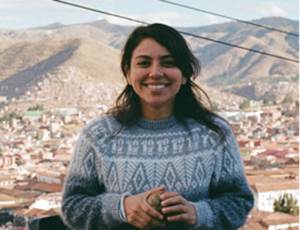
Zahra Khalid is a PhD Candidate in Earth and Environmental Sciences (Geography) at the CUNY Graduate Center. Her research interest lies in the interconnection of militarism and capitalism’s spatial regime of uneven development, with a focus on real-estate development in geographies of war. Her doctoral dissertation investigates military-led residential developments in Pakistan, and the middle-class desires, anxieties, and aspirations that animate this military political economy. She has taught courses in Urban Studies at Queens College, and is committed to a socially-conscious pedagogy. With student well-being at heart, she aims to apply the broad principles of open pedagogy; specifically, privileging open source materials, utilizing students’ life experiences towards learning, honing their research skills, and sparking critical thinking towards our shared contemporary moment and everyday lives.
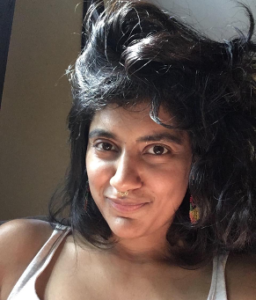
Francisco Medina is a doctoral student in the Urban Education program at the Graduate Center, CUNY. He is a former mentor to undergraduate students in the CUNY Pipeline program and a research assistant at LaGuardia Community College. In the past, he has been part of various collaborative research projects with, by, and for community colleges students to transform educational practices. His current interdisciplinary work cuts across research in education, social sciences, biology, and the humanities to investigate the ways in which scientism and biologism vis-a-vis the construction of “human nature” co-produce de/humanizing discourses, subjectivities, and institutional practices in education. Other interests include, curriculum design and implementation, learning and identity, developmental psychology, inclusive pedagogy, critical-theoretical learning, and isms in the college classroom.
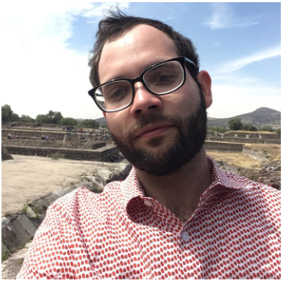
Seth Graves is a doctoral candidate in English at the CUNY Graduate Center who specializes in writing studies, rhetoric, and digital culture. He is writing his dissertation on internet literacy and the socialization of digital “adopters.” In addition to his CET Fellowship, he is a Digital Pedagogy Specialist with the Baruch College’s Center for Teaching and Learning as well as Writing and Great Works Program Manager with Baruch’s English department. He is assistant editor of the Journal of Basic Writing and teaches composition and rhetoric at Baruch and creative writing at The New School, with past teaching at City College, John Jay, City Tech, and Pace University. Recent courses include an MFA workshop on writing pedagogy (New School), a fully asynchronous composition course (Baruch), and an upper-division majors course, “rhetoric and reality” (City).
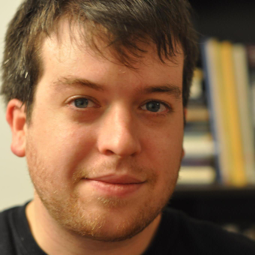
Jason Block is a mathematics PhD student at the CUNY Graduate Center. His research area is computability theory, a branch of mathematical logic that examines the complexity of functions, sets, and other mathematical objects. He is a co-organizer and founder of the CUNY Student Logic Seminar. Since 2018, he has been an adjunct in the mathematics department at Brooklyn College. Both as an instructor and as a Carnegie Fellow, he tries to create instructional methods that are accessible to all students, especially those facing difficult circumstances.
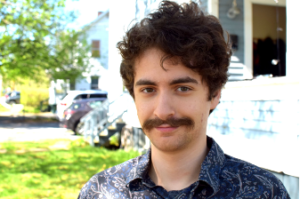
Agustina Checa (she, her) is a doctoral candidate in Ethnomusicology at the Graduate Center. Her dissertation examines value, material culture, independent music, and alternative economies through an ethnographic study of cassette labels in Argentina. She is the creator and director of Magnetismo Sónico (www.magnetismosonico.org), a public archive that showcases the work of cassette labels in Latin America and aims to foster connections between tape makers and enthusiasts. The website was awarded an honorable mention in the 2020 NYCDH Graduate Student Digital Project Award and recognized by reviewers as: “a unique project that makes a contribution to a range of fields and benefits the community being studied”. Agustina has been an active contributor to various outlets of indie music and culture in Latin America for a decade and has worked with and alongside record labels in the US and Argentina. Before becoming a Carnegie Educational Technologist fellow, she taught in Brooklyn College’s music department for several years and served as a Writing-Across the Curriculum (WAC) fellow at Kingsborough Community College. Combining her advocacy for de-colonial, public-facing scholarship with her passion for inclusive and culturally responsive pedagogies, Agustina hopes to help in her capacity as a fellow to foster engaging, anti-racist, accessible, and transformative classrooms.
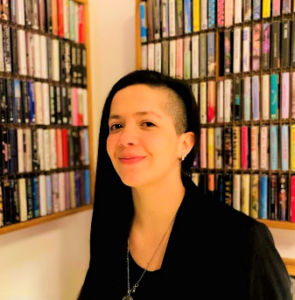
Mike Mena is a PhD candidate in Linguistic Anthropology at the Graduate Center and focuses on how ideologies of race and language converge in ways that reproduce hierarchical arrangements and income inequality. He is currently conducting ethnographic research on the neoliberalization of higher education at a self-described “bilingual” university in Texas. Mike also works as an educational technologist and media-making consultant for educators. He specializes in video production and video/image editing software. In 2019, Mena’s YouTube channel, The Social Life of Language, was recognized with the Society for Linguistic Anthropology’s “Public Outreach and Community Service Award.” The Social Life of Language continues to receive national and international recognition for its multi-modal pedagogical approach and as intellectually informed public activism.
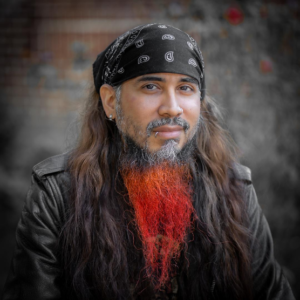
John Zayac is a Ph.D. candidate in the Earth and Environmental Sciences Program. His dissertation research combines field and analytical methods to decipher the triggering mechanisms and eruptive history of highly explosive volcanoes in northwestern Nicaragua. Following the completion of his B.S. at the University of California, Santa Cruz, and his M.S. at the University of California, Santa Barbara, John worked as community college geology professor in Los Angeles. John has taught lecture, laboratory, and independent project-driven courses at UC Santa Barbara, Los Angeles Pierce College, Queens College, and Vassar. John is broadly focused on the development of resources to support STEM instruction and the expansion of foundational quantitative and scientific literacy throughout the CUNY student population.
